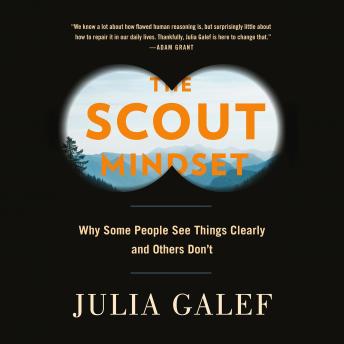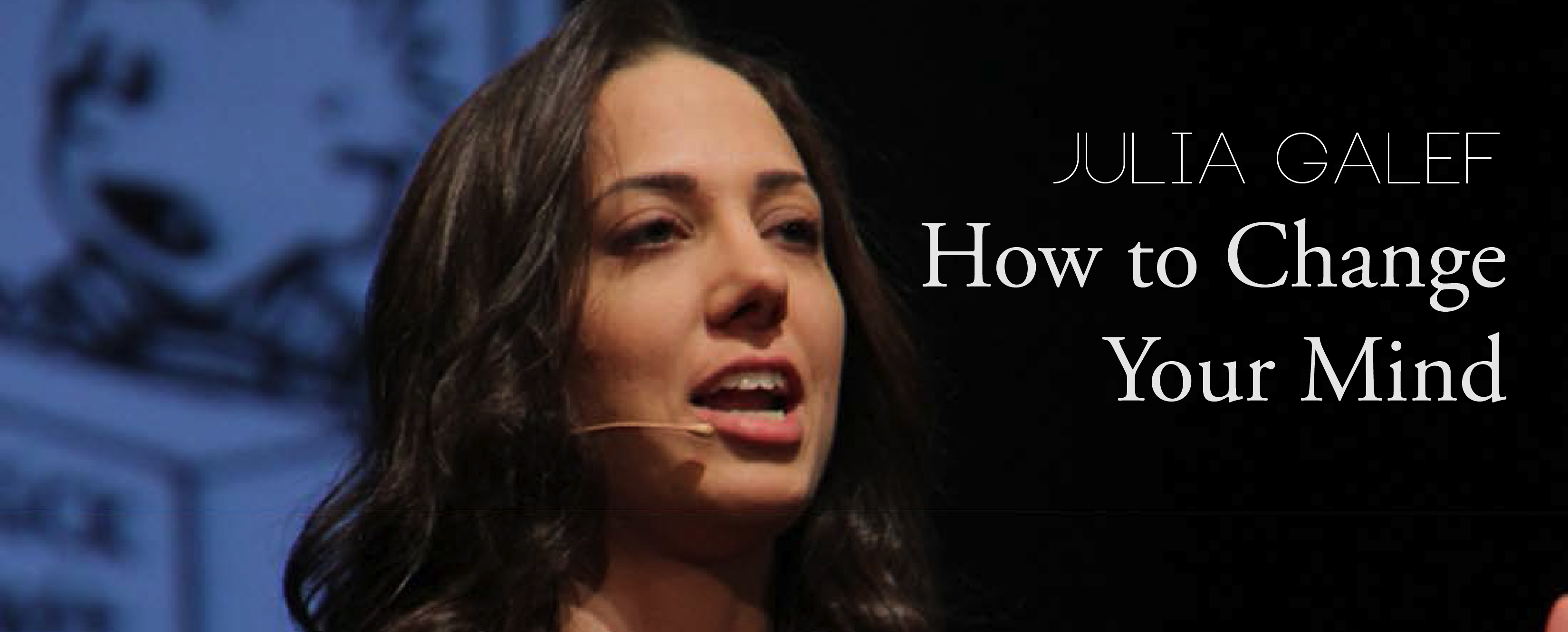
As a kid, I lamented not being sufficiently self-deceived, and I still believed that maybe greater self-deception was the only path to happiness. It may sound funny, but telling someone that you are 74% confident things will turn out one way gives the person a lot more information than saying, “I’m fairly confident.”įor me, the most moving part of reading this book is that it made me re-examine the way I look at the world. I have introduced into my decisions a percentage-confidence system. Between these two books you can improve your decision hygiene and make yourself a little bit smarter by being a lot less certain.
Julia galef book how to#
This book is a great complement to Annie Duke’s “ Thinking in Bets” (Duke won the October 2020 Prestigious Ashurbanipal award for her more recent book, “ How to Decide”). So, I have to ask myself: Am I attracted to this book because of motivated reasoning and confirmation bias, since Galef and I agree on so many different things? Well, I can't dismiss the possibility, and I’m open to updating my assumptions. It’s also useful to know if more people than you thought agree with you but were afraid to say so (see: the Emperor’s New Clothes or “pluralistic ignorance” as Steven Pinker put it at FIRE’s 15th Anniversary). If people have crazy beliefs, it’s better to know that early than to be surprised by it later. If you can learn to look at things with even just a little scholarly detachment, you rarely benefit from knowing less about what people really think. If that’s your goal, then censorship seems counterproductive. Simply, the most important justification for freedom of speech is the paramount importance of knowing the world as it really is.
Julia galef book free#
I dubbed it the “pure informational theory of free speech,” or, the “lab in the looking glass” theory. Last year, right before we launched the ERI blog, I wrote a post that conveyed my idiosyncratic view of free speech. That’s utter nonsense, but it’s one thing to know this intellectually it’s another thing to feel it deep down. I used to even joke with a friend that maybe ignorance is the only bliss. She also taught me the valuable distinction between “social confidence” and “epistemic confidence.” (Explain those? No! Read the book!) She dispels some common misconceptions, including that Abraham Lincoln’s team of rivals was effective, that you can effectively get out of your echo chamber just by turning on the right-wing or left-wing news, and that people who express doubt are less persuasive.

Galef pokes fun at her own failures and fully admits to her own failings to make it easier for the reader to do the same. It is jam-packed with new information and stories, conveyed in a way that is clear, relatable, concise, honest, thoughtful, and funny.

The book is also everything that good popular nonfiction should be. Critically, the book discusses at length how we deal with one of the toughest self-deceptions: “ motivated reasoning” (i.e., when we come to hold beliefs not through rational methods, but by weighting evidence differently based on what conclusion we want to come to). “The Scout Mindset” is my book of the month because it discusses not only the c ognitive impediments to being more or less self-deceived, but the emotional impediments as well. (Galef credits YouTuber Natalie Wynn of the channel ContraPoints with this term.) My Catholic mother and Russian Orthodox father knew this epistemology well, but I think it was more my situation and temperament that led to this bleak worldview.

Whereas now I’m sure I have plenty of self-inflating deceptions, my major issue when I was in, say, grade school, was that I believed in “masochistic epistemology”: whatever hurts is true.

The most important personal takeaway from Julia Galef’s excellent book, “ The Scout Mindset: Why Some People See Things Clearly and Others Don’t,” is that you do not, in fact, have to be self-deceived to be happy. As time went on, I would realize that I was (and probably still am) plenty self-deceived. Yet those delusions seemed useful when it came to making friends, getting dates, and succeeding in sports. The happier, more confident kids all seemed to possess a self-assurance that required (at least to my mind) an unrealistic view of themselves and life in general. Key Concept - The Scout Mindset: A term coined by author and Center for Applied Rationality co-founder Julia Galef that refers to a mindset that is committed to knowing the world as it is, as accurately as possible, despite the reality of cognitive biases, stubbornness, pressure from “our tribe,” the impossibility of perfect information, and the permanence of uncertainty.Īpril’s Prestigious Ashurbanipal award goes to “The Scout Mindset: Why Some People See Things Clearly and Others Don’t”Īs a kid, I remember wishing I was more self-deceived.


 0 kommentar(er)
0 kommentar(er)
